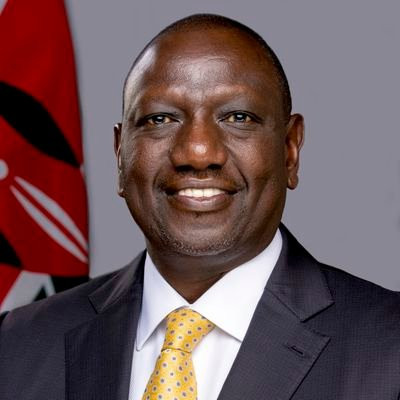
FOR over eight decades, the IMF has stood as a pillar of global macroeconomic and financial stability. Originating from the Bretton Woods conference attended by 44 delegations, the IMF now encompasses 190 member countries, with Africa’s 54 members forming the largest regional group. This growth reflects a significant evolution from the original framework designed to support the gold standard of fixed exchange rates. The collapse of that system 50 years ago shifted the IMF’s role from underwriting fixed exchange rates to promoting flexible exchange rates.
In response to these shifts, the IMF has evolved into a development financing institution. Its current portfolio stands at US$112 billion spread across 90 countries, translating to just over US$1,2 billion per borrower. Excluding Argentina ($32 billion), this figure falls to US$900 million per borrower and to just under US$700 million when excluding the top three borrowers (Argentina, Egypt and Ukraine), which account for 46% of the portfolio.
If a conference akin to Bretton Woods were convened today, it would likely focus on the intertwined challenges of development and climate change. Recent global conferences, including the UN Sustainable Development Goals Summit and COP28 climate summit, have underscored our shortcomings in addressing these challenges, primarily because of underfunding and a dysfunctional financial system.
Critical driver
The critical driver of future global economic growth will be the Global South, with sub-Saharan Africa expected to double its share of the global workforce, from about 13% today to 25% by 2050. Addressing this potential hinges on reforming the multilateral financial system to better respond to today’s realities, such as climate vulnerability and economic fragility exacerbated by global shocks.
In East Africa and the Horn of Africa, we are only beginning to recover from four seasons of drought, the worst in half a century, which resulted in the loss of an estimated 9,5 million heads of livestock, with 2,4 million in Kenya alone. Currently, we are experiencing devastating floods, the worst since the 1997 El Niño. The deluge has already claimed over 250 lives in Kenya, Tanzania and Burundi; displaced thousands of people and caused severe damage to property, crops and infrastructure.
In my recent discussions with international officials, a consensus has emerged on four key areas of IMF reform: Lending instruments, issuance of special drawing rights (SDRs), addressing debt distress and governance reforms.
Lending instruments: There is broad consensus on the need to decouple lending from quota systems. The current “exceptional access policy” is not only restrictive but also imposes punitive surcharges that reflect an outdated system. Today’s economic challenges, such as climate-induced disasters and pandemics, demand a recalibration of financial instruments to flexibly address these crises.
- Let’s heed World Bank’s wise counsel
- IMF delegation to focus on economic policies, outlook
- The world bows to Messi
- Cristiano Ronaldo remains SILENT after great rival Lionel Messi shot Argentina to World Cup glory
Keep Reading
I advocate unbundling lending instruments so that each is subject to its own relevant eligibility criteria and tailored to government interventions that respond to specific needs, as opposed to the current situation in which all instruments are tied to the IMF’s standard macroeconomic programme.
Consider the case of the Resilience and Sustainability Facility (RSF).
The RSF is a welcome innovation that recognises climate change vulnerability as a driver of economic fragility. However, to access the resilience facility, a country must have an IMF programme already in place. This poses a challenge for climate-vulnerable countries with sound economic management that may wish to access the facility to build resilience.
Special drawing rights: The issuance of SDRs remains a vital tool for crisis management. However, recent allocations highlight the need for reform, with low-income countries, which most need a financial safety net, receiving a meagre 2,4% of the 2021 allocation. The entire African continent received only 5,2%. By contrast, developed economies — which do not require financial support — received 64%. Wealthier nations have pledged to redirect US$100 billion in SDRs to support vulnerable countries. While these pledges have augmented the IMF’s capacity and provided seed financing for the RSF, the slow deployment of these funds underscores inefficiencies in current practices.
The current voting rights in international financial institutions do not reflect the economic and demographic realities of today.
Debt distress: The developing world is facing a debt crisis reminiscent of the conditions that led to the IMF’s and World Bank’s Highly-Indebted Poor Countries initiative of the mid-1990s. The World Bank’s latest international debt report confirms this prognosis, reporting that sovereign defaults in 10 countries in the past three years surpass the total for the preceding two decades.
Moreover, the number of emerging market economies with bond yield spreads in distress territory (1 000 basis points or more over comparable US Treasury bonds) has risen tenfold, from 2 to 20 since 2020. With rising interest rates compounding debt-servicing challenges, there is an urgent need for comprehensive debt-refinancing programmes, similar to the Brady Plan response to the Latin American debt crisis of the 1980s, to provide relief and support sustainable development.
Governance reforms: Global economic governance has lagged behind the economic rise of the Global South and other geo-political shifts. The current voting rights in international financial institutions do not reflect the economic and demographic realities of today, particularly the significant contributions of the Global South, which already accounts for half of global GDP and 80% of the world’s population.
Corporate governance principles suggest a need for more equitable representation and independence in decision-making processes.
The future relevance of the IMF will depend on its ability to adapt to these emerging challenges and listen to the needs of its global membership. The path forward involves significant reform, but with co-operative and concerted effort, we can ensure the IMF remains a cornerstone of global stability for generations to come.
- William Ruto is the president of Kenya










